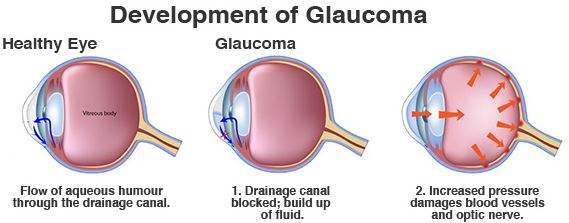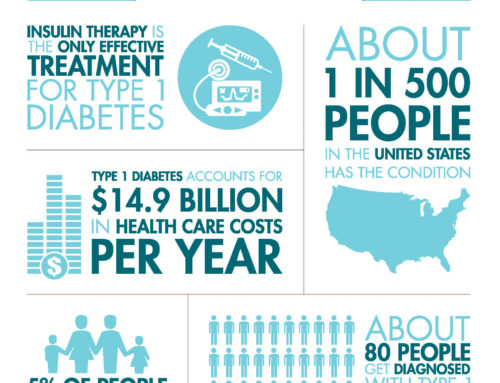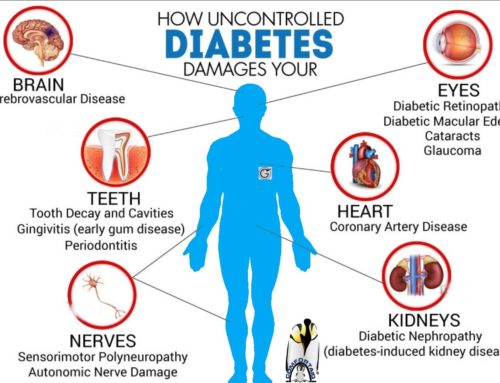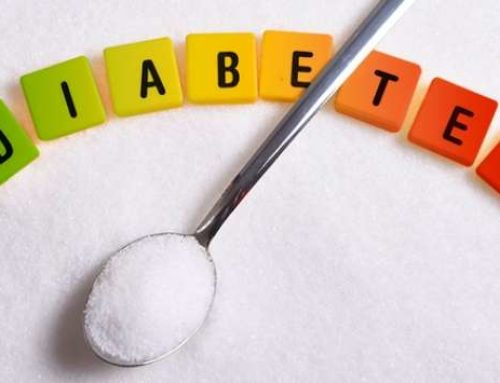Although the risks of eye-related complications are significantly higher for those with diabetes, it goes without saying that it is when these complications are left untreated, that the most damage is done to the eyes. The emphasis on “Frequent Checkups” is due to this very fact; the earlier the problem is detected, the greater the possibility of a complete cure and the easier the treatment.
The question is if eye-complications due to diabetes are left untreated or if they are not detected in time, how will that affect your eyes?
Cataract:
Fortunately, cataracts are detected relatively easily. A blurring or cloudiness in vision is something that cannot go unnoticed for too long. Cataract treatment has become a routine procedure made even simpler by the introduction of laser surgery. If left untreated though, this treatable complication can lead to blindness. The sooner the cataract is removed the better it is.
Glaucoma:
Depending on the type of glaucoma, the symptoms and the corresponding effects vary. Generally, peripheral vision is affected and the loss of vision occurs gradually, deteriorating to complete blindness. In closed-angle glaucoma the pressure in the eye has to be relieved on emergency basis or the optic nerve is permanently damaged. Short recurring episodes of glaucoma may lead to blindness if left untreated.
Diabetic Retinopathy:
The most dangerous of all eye-complications due to diabetes, diabetic retinopathy is the leading cause of blindness in diabetics. What starts as painless floaters or black patches in vision, lead to a complete loss of sight when left untreated. The damage to the vessels and the retina is irreparable once the condition has progressed to its peak. The only way to deal with diabetic retinopathy is to catch it in its early phases, so that the vessels are repaired and the leakage contained.
Four STAGES of Diabetic Retinopathy:
STAGE 1: At the earliest stage, micro-aneurysms occur.
STAGE 2: Some blood vessels that nourish the retina are blocked.
STAGE 3: More blood vessels are blocked, depriving several areas of the retina with their blood supply.
STAGE 4: New blood vessels grow, but they are abnormal and fragile. If these new blood vessels leak blood, vision loss even blindness can occur.
Ways to Avoid Eye Problems in Diabetics
Strictly managing diabetes allows you to control your eye problems to a great extent. Here are a few general tips that could help control the progression of eye-related complications.
• Take your diabetic medication regularly.
• Control blood sugar levels through a proper diet.
• If insulin is required, take it as prescribed.
• Keep fit and exercise regularly.
• Do regular testing for blood and urine sugar levels.
What one gathers from the studying the various eye-related complications is that they can cause blindness if left untreated. Regular checkups and testing is essential in ensuring that the problems are detected and treated on time.
Diabetes and Eye Care … read more:
Each article is published individually and after careful review by Gluxus’ medical panel. Please check myGBlog® section frequently for information on additional topics.












Leave A Comment